
The Business of Fashion
Agenda-setting intelligence, analysis and advice for the global fashion community.

Agenda-setting intelligence, analysis and advice for the global fashion community.
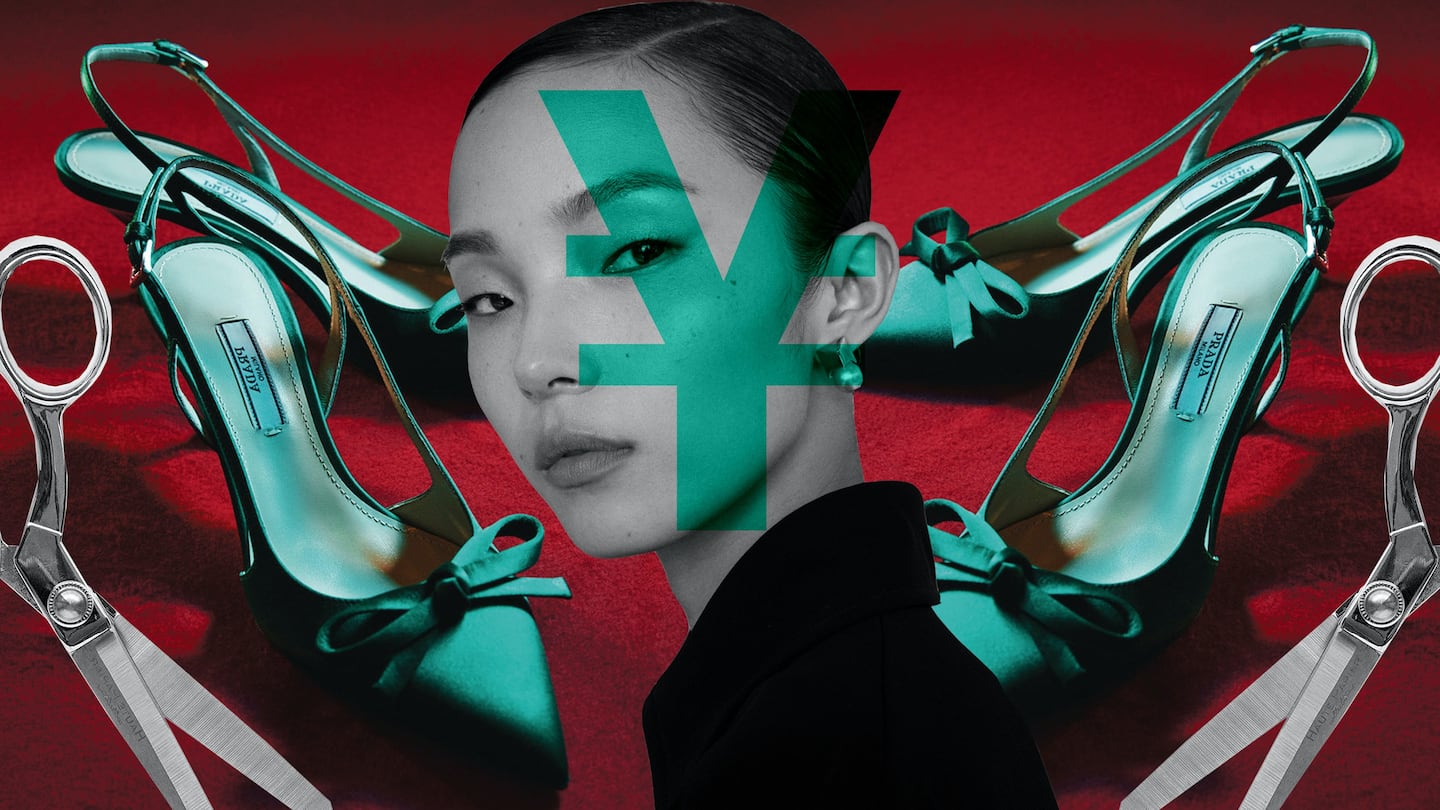
Hello BoF Professionals, welcome to our latest members-only briefing. China’s colossal size and dynamism makes it a top priority for any global business, but it remains opaque to many in the fashion industry. Leveraging our rare access and local knowledge, the BoF China team demystifies the Chinese market with weekly industry analysis and the wider socio-cultural context you need to sharpen your focus.
SHANGHAI, China — Aimed at boosting domestic consumption to offset China's slowing GDP growth, Beijing lowered VAT from 16 to 13 percent as part of a wider tax reduction worth almost 2 billion yuan ($298 billion), effective last Monday.
Like clockwork, European luxury groups LVMH, Prada and Kering passed on this gain to consumers by cutting retail prices from three to six percent, taking yet another step to harmonise prices across Chinese and foreign points of sale.
But for Prada — whose stock has tumbled about 35 percent in the past year due in part to weakening demand from Chinese tourists — marginally lower prices alone won't save its profits.
ADVERTISEMENT
The key lies in repatriation (Chinese shoppers shopping at home), in which price harmonisation plays only one part.
According to HSBC’s latest report, a strong yuan and the ongoing resolution of structural barriers to domestic consumption — from harmonising inconsistent prices to upgrading the country’s e-commerce ecosystem and investing in travel retail infrastructure — mean that repatriation is growing at 12 percent in China, double the global rate for 2019.
Repatriation is growing at 12 percent in China, double the global rate for 2019.
"We know that the market for Chinese consumers buying abroad is huge, and we know that the market we call daigou [overseas luxury personal shoppers] is huge as well," Thibaud Andre, Daxue Consulting's research director tells BoF. "This is the government trying to take them on."
But only with Beijing's new e-commerce law that kicked in on January 1 did the government's crackdown on the latter "grey market" bear its teeth. "The first tax cuts [in 2018] didn't have much of an impact," Andre continues. "This time, the policies follow the new regulation, which could lead to this second wave being more efficient."
Partially due to this repatriation of luxury spending, HSBC forecasts that China's luxury sector is set to grow at twice the global pace. And according to Mario Ortelli, managing partner at luxury advisory firm Ortelli & Co, repatriation is a great opportunity for brands to sharpen their identities in China and commit to expanding their networks beyond flagship stores in the country's first-tier cities.
However, not all brands will reap the rewards. “The price gap is not massive and is just one of many variables,” says Ortelli. “Brands will have to work on all the variables to create the magic that Chinese shoppers want to buy into.” In other words, consumers won’t covet a slightly cheaper product if it wasn’t desirable to begin with.
As such, brands need to urgently re-evaluate their product offerings and presence, suggests Ortelli. "Repatriation is good news for brands who already have a strong network within China: good [physical] stores of the right size in the right location, with state-of-the-art e-commerce." He notes Louis Vuitton, Dior, Gucci as current frontrunners. Meanwhile, Bottega Veneta, Ferragamo and Prada are making a turnaround and could possibly regain favour among China's luxury shoppers, he says.
For every brand that grew by more than 25 percent in 2018, there were two brands that grew by less than 10 percent.
As brand performance becomes increasingly polarised, it will soon be too late for brands without a strong physical presence in China. According to Bain & Company, those that saw good results in 2017 are continuing to do so, while poor performance is getting harder to shake. “For every brand that grew by more than 25 percent in 2018, there were two brands that grew by less than 10 percent,” the firm stated in a recent report.
ADVERTISEMENT
“The market is so saturated right now that it might be difficult for [slower luxury players] to find new stores, new distributors and so on,” Andre warned. “Chinese distributors are overwhelmed with this demand from brands right now and have already gone for the top luxury names.”
Looking ahead, HSBC forecasts that likely beneficiaries of repatriation include Kering, Richemont, SMCP and Burberry — all companies with strong footholds in the Middle Kingdom.
Repatriation can also help explain recent headlines about Burberry, a company that HSBC estimates 37 percent of its 2018 sales could be traced to Mainland China.
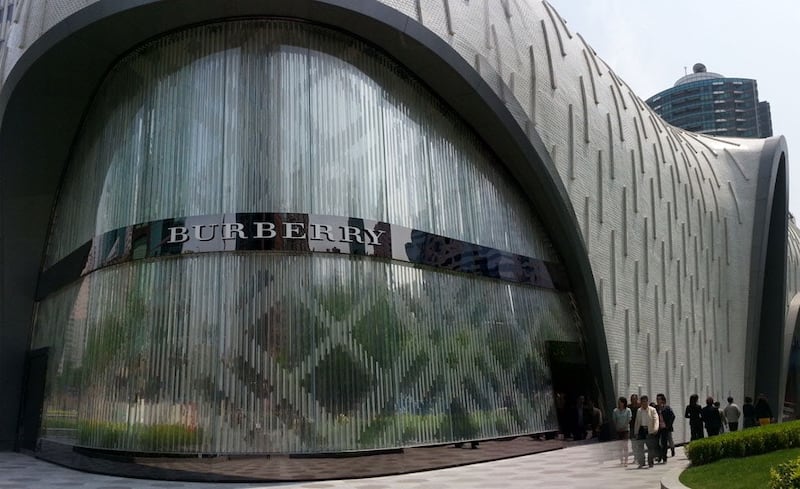
Burberry's recently closed L'Avenue flagship | Source: L'Avenue
Just last week, local Chinese media reported that the British brand halved its presence in Shanghai when it shuttered its flagship store at L’Avenue mall — its fourth closure in six months. It was later reported by Qi Lu Evening Post that the brand had also closed its flagship location in China’s Jinan city, while a salesperson reportedly told local media that Burberry now only runs one self-operated store among the Mainland’s second-tier cities.
According to Burberry, local media outlets’ claims that the brand is “retreating” from China are false. “We are making some of our biggest investments in Shanghai, where we recently refreshed our flagship store at Kerry Centre and we will open two new stores at IFC Mall and IAPM Mall in the coming months,” a spokesperson told BoF. “This strengthens our presence in Shanghai, a key luxury shopping destination.”
Indeed, Burberry’s chief executive Marco Gobbetti announced such plans in May 2018. “It's going to be about upgrading where there is opportunity and [refreshing] the look of the stores,” Gobbetti said at the time.
In its attempt to make the most out of repatriation, LVMH is taking a different, diplomatic path. On March 25, LVMH director Antoine Arnault signed an agreement with the China International Import Expo (CIIE) Bureau to showcase products by the likes of Louis Vuitton, Dior and Rimowa at the expo this coming November — the group will occupy almost 4,000 square feet of space at the trade show.
ADVERTISEMENT
“The question isn't to know if joining the CIIE will help the LVMH group to achieve its goals in China,” Arnault tells BoF. “The real challenge is to demonstrate our affection and admiration for China, our friendship for its people and our willingness to partner with its government. That's the meaning of the important decision we made.”
时尚与美容
FASHION & BEAUTY
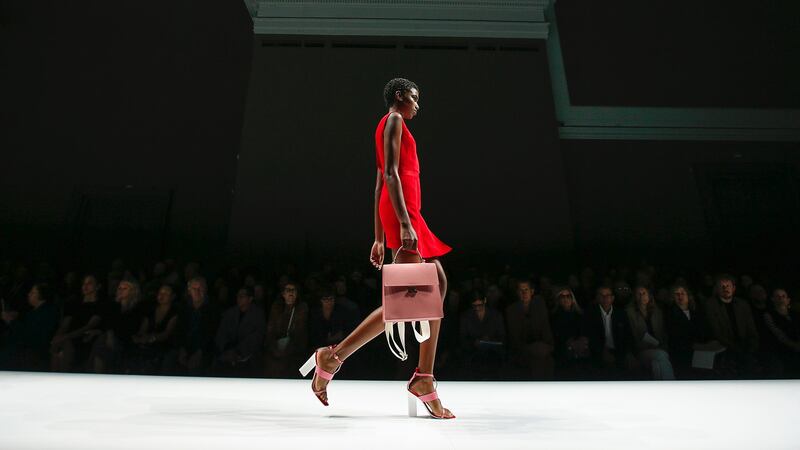
Lanvin Spring/Summer 2018 | Source: Indigital
Fosun Contemplates Separate Listing for Fashion Business
According to a recent statement by Fosun International's executive director and co-president Chen Qiyu, the multinational's long-term plans include IPOs for mature arms of its portfolio of companies, where eyes are already on its fashion group as a potential candidate. Aside from controlling brands such as Lanvin and Wolford through its Fosun Fashion Group, Fosun International's empire extends into pharmaceuticals, high tech, films, tourism, asset management and real estate, but the company hasn't divulged a concrete timeline for going public. Given the recent launch of its China-centric brand management arm — aimed at helping foreign companies succeed in the Middle Kingdom — and growing cache of offshore investments, the conglomerate isn't being subtle about its global ambitions. (Winshang)
Post $125M IPO, Influencer Incubator Faces Uncertain Future
Influencer incubator Ruhnn (known also as Ruhan) has raised $125 million after listing on the Nasdaq last Wednesday, headed by the face of the company, mega-influencer Zhang Dayi. Hangzhou-based, Alibaba-backed Ruhnn sold 10 million American Depositary Shares at $12.5 a share, and became the first influencer-related enterprise to go public. However, after trading closed on its first day, the company's shares fell 37.2 percent to $7.85, and experts have reportedly argued that Ruhnn's business model — split into influencer incubation, management and e-commerce — is high-cost and loss-making, while it has trouble replicating Zhang's success. Soon after the IPO, a company representative announced plans to revamp its business model, which will be anticipated as an indication of whether China's 32.9 billion yuan ($4.9 billion) influencer bubble is going to pop. (Techcrunch, Jiemian)
One Small Step Towards Non-Animal Cosmetics Testing
Recently, China's National Medical Products Administration (NMPA) announced their acceptance of certain non-animal test methods in post-market regulation for imported and domestically produced cosmetics. It's been a long time coming for the country, which has been criticised by ethical organisations and brands for being the only country in the world that deems animal testing compulsory. However, this change does not end animal testing for cosmetics in China as pre-market testing requirements remain unchanged; nor does it entail that beauty companies can import to China immediately and be declared cruelty-free. Even so, it presents a major development in China's ethical beauty landscape. (Eurekalert, Green Matters)
科技与创新
TECH & INNOVATION
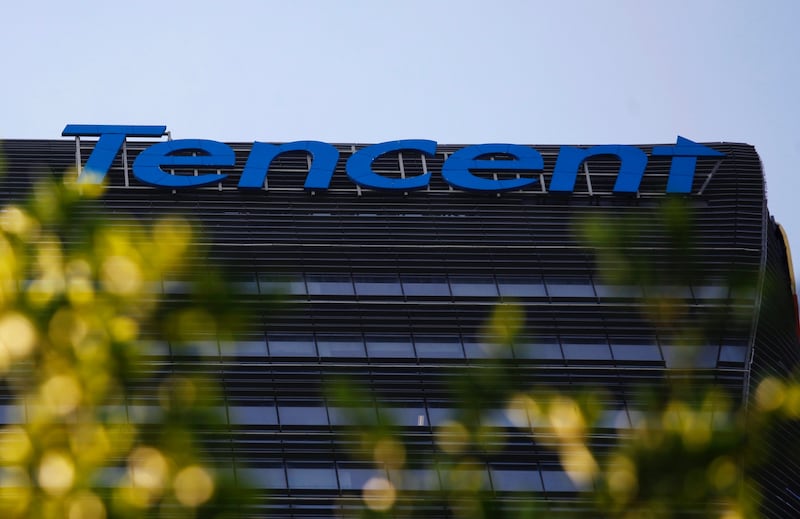
Tencent | Source: Tencent
Tencent Quietly Tests Global Waters, Announces $6 Billion Bond Sale
WeGame X, the international edition of tech firm Tencent's digital game market, has arrived without fanfare. Though many in the West know Tencent as the owner of super app WeChat, it's also the world's top gaming company by revenue. By testing the waters with its latest launch, the company hopes to bring more Chinese games to a broader audience, which has many questioning whether other parts of its business will follow. Just last week, Tencent announced that it is raising $6 billion by bond sale — though the company has been tight-lipped about how the capital will be spent, it said after a reorganisation in 2018 that renewed focus would be placed on enterprise-led initiatives and cutting-edge technologies, but expanding its geographical reach could also be a possibility. (Abacus)
RIP, China’s Tech Bubble
China's tech bubble — a result of an onslaught of private equity pushing companies' valuations through the roof — may soon burst, thanks to the lack of fundraising from local entrepreneurs and shadow banks. According to Bain & Company, the median enterprise value for Chinese tech takeovers was double that of other industries in Greater China and 2.4 times greater than the median multiple for Asia-Pacific deals in 2016-2018. However, Beijing's crackdown on the asset management sector means onshore capital is drying up, and offshore private equity funds will no longer struggle to compete, giving foreign private equity firms some breathing room to pick targets in the Middle Kingdom. (Bloomberg)
Tech Workers’ Rare Overtime Protest Goes Viral
In a rare pushback against China's cut-throat office culture, tech workers are protesting online against their "996" hours: 9am to 9pm workday, six days a week. Last week, an anonymous account launched the "996.ICU" project on Microsoft's code host GitHub, which quickly became the platform's most book-marked on Friday, with over 176,000 followers. On it, users are sharing stories of excessive overtime and voting to blacklist companies with poor working conditions — tech and retail giants Alibaba and JD.com were among the top offenders, according to submissions. (Reuters)
消费与零售
CONSUMER & RETAIL
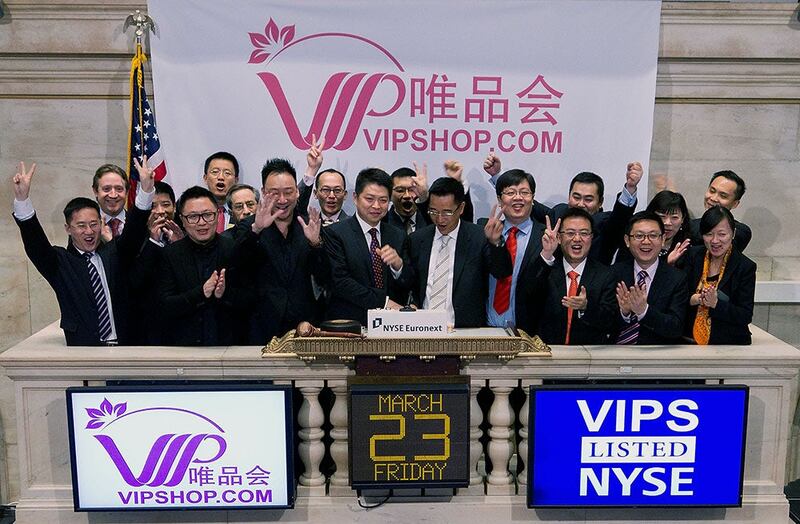
Vipshop debuts on the New York Stock Exchange in 2012 | Source: NYSE
Why Can’t Tencent, JD.com Save Vipshop?
Chinese e-commerce platform Vipshop is refuting reports by local media outlets such as EEO that they have disbanded their Beijing offices, citing organisational restructuring for recent departures. Though Vipshop is still being backed by tech and retail giants Tencent and JD.com, things are looking bleak: the company recently shut down its cross-border arm Guruin, and its total revenue growth slipped 8 percent year-on-year in the fourth quarter of 2018, down from 16 percent in the previous quarter. Observers are citing four reasons for its decline: an inability to stimulate continuous growth among active users, high yet ineffective logistics investments, increasingly strong competitors and a shortage of stock. (36Kr)
Hong Kong Retail Sales Slump For the First Time in Two Years
Hong Kong's retail sales dropped in February, government data revealed last Monday. Sales in the shopping mecca favoured by Mainland Chinese tourists fell 10.1 percent year-on-year to HKD $40.7 billion ($5.18 billion), compared with a revised 7.0 percent rise in January. The slump has been partially attributed to the earlier Chinese New Year shopping frenzy, which fell on February 5 this year but began on February 16 in 2018. However, a weaker yuan and trade war tensions are also to blame for poor consumer sentiment, though thawing US-China relations suggest that the slip could be an anomaly once Washington and Beijing patch things over. (Reuters)
JD.com Under Fire For Encouraging Overworking
Aimed to boost margins amid China's slowing economy, local retail giant JD.com recently announced its shift from fixed base salaries to commission-based compensation for over 100,000 deliverymen. The company is also reducing benefits for such workers, effective June. Following on from a series of layoffs and executive resignations, JD.com has been entangled in China's national discussion on working culture and "996" office hours. The company made headlines when a leaked email categorising "under-performers," including employees who don't continue "fighting" to excel at work due to "personal well-being or family reasons." The company has defended its policy to local news site Maimai, saying "we would like to create an environment that relies on a fair, hardworking environment instead of dawdling day after day using excuses." (Technode, Quartz)
政治、经济、社会
POLITICS, ECONOMY, SOCIETY
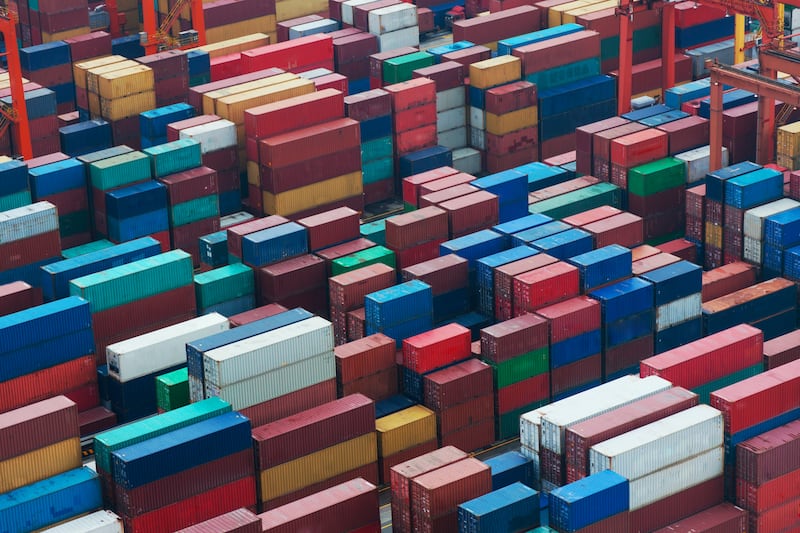
Cargo freight containers at Hong Kong's sea port | Source: Shutterstock
Global Stocks Subdued as Washington and Beijing Look to End Standoff
On Sunday, China's state-run news agency declared that last week's trade talks with Washington dealing with technology transfer, IP protection and non-tariff measures "achieved new progress," though White House press secretary Sarah Sanders said Friday that "significant work remains." Stock markets have shown mixed reactions since, with Britain's FTSE 100 and France's CAC 40 rising 0.1 percent, and Germany's DAX and Japan's Nikkei 225 index slipping 0.3 percent and 0.2 percent respectively. Neither Beijing nor Washington has elaborated on a timeline for further discussions, kicking off another week of uncertainty amid Britain's Brexit impasse. (AP News)
Shanghai Falls Short of Ambitions to Become a Global Financial Hub
Back in 2009, Shanghai officials pledged it would be on an equal footing to financial hubs New York, London and Hong Kong by 2020. However, a recent survey by the American Chamber of Commerce in Shanghai has found otherwise, arguing that capital controls could dampen the city's dreams. According to Amcham, Shanghai is more of a commercial and shipping capital than a fully-fledged international financial centre, and strict control of capital flows as well as heavy government intervention are bad news for capitalists seeking a safe haven. Respondents voiced that Shanghai's financial sector lacked autonomy from oversight in Beijing, while foreign money represents a negligible percentage of the country's stock market and international use of the yuan remains limited. (SCMP)
Long Hours and Big Paychecks in China’s Child Modelling Mecca
Though it used to house a small population of 100,000, thousands of Chinese families are relocating to Zhili, a small town in China's Zhejiang province, where a thriving childrenswear industry means child models can pocket up to $1,500 a day. Thanks to the 10,000 child garment manufacturers based there, top child models are reportedly earning 1 million yuan a year, while moderately successful models are raking in hundreds of thousands of yuan. However, an increasing number of children are competing for work at exploitative hours — one girl said she wore over 264 outfits and worked from nine in the morning to two in the morning on weekends, and shoots would begin in the afternoon and end at midnight on weekdays. One parent said, "child models can only work for a few years, but in that amount of time, they can earn sums that normal people can't even dream of." (East Money)
China Decoded wants to hear from you. Send tips, suggestions, complaints and compliments to zoe.suen@businessoffashion.com.
With consumers tightening their belts in China, the battle between global fast fashion brands and local high street giants has intensified.
Investors are bracing for a steep slowdown in luxury sales when luxury companies report their first quarter results, reflecting lacklustre Chinese demand.
The French beauty giant’s two latest deals are part of a wider M&A push by global players to capture a larger slice of the China market, targeting buzzy high-end brands that offer products with distinctive Chinese elements.
Post-Covid spend by US tourists in Europe has surged past 2019 levels. Chinese travellers, by contrast, have largely favoured domestic and regional destinations like Hong Kong, Singapore and Japan.